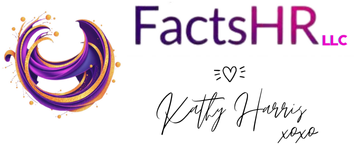Understanding the Recent H1B Proclamation: What Employers Need to Know
In light of recent developments regarding the H1B visa program, it’s crucial for employers and HR professionals to stay informed to this emerging development and adapt their strategies accordingly. President Trump’s latest proclamation has raised critical points that may impact how businesses engage with foreign talent. While the intent is to protect US Workers, this could inadvertently hurt small to medium-sized businesses. Don’t panic, just stay tuned…
Key Highlights of the Proclamation
- Suspension of H1B Visas: The proclamation temporarily suspends the issuance of new H1B visas, along with certain other non-immigrant visas. This move is aimed at prioritizing American jobs during the economic recovery from the COVID-19 pandemic.
- Impact on Employers: Companies that rely on H1B workers for roles in technology, healthcare, and engineering sectors may face significant difficulties in filling vital positions. Understanding the implications is essential for maintaining productivity and innovation.
- Exemptions: The proclamation includes some exemptions, notably for workers in healthcare sectors directly addressing the pandemic, and individuals who are necessary for national security. Employers should review their circumstances to see if they qualify for any exemptions.
Implications for Hiring and Talent Management
- Talent Scarcity: With restrictions in place for new H1B visas, companies may find their talent pipeline significantly hindered. This may necessitate a reevaluation of recruitment strategies, focusing more on local talent or alternative visa categories.
- Retention of Current Employees: Employers should prioritize the retention of existing H1B workers. Crafting strategies to ensure job satisfaction and engagement will be crucial as businesses navigate this landscape.
- Future Workforce Planning: Organizations may need to think long-term about their workforce strategies. This could mean investing in training for local employees to fill roles that would traditionally be filled by H1B visa holders.
HR Best Practices Moving Forward
- Stay Informed: Regularly monitor legal updates and guidelines related to immigration and employment law. Ensure your HR team is educated and can respond rapidly to any changes.
- Flexible Strategies: Develop flexible hiring strategies to accommodate the fluctuating availability of international talent. Consider alternative visa options or local hiring initiatives.
- Employee Communication: Keep communication open with your current international employees. Provide clear information regarding their visa status and any implications resulting from the new proclamation.
- Advocacy and Support: Engage with industry groups and advocacy organizations that represent the interests of businesses dependent on international talent. Collaborate to push for legislative changes that promote fair access to skilled labor.
Q & A
Q. Who is responsible for paying the $100K fee—the employer or the employee?
A. Answer: The responsibility for covering the $100K fee lies with employers.
Q. Does the $100K fee apply to H-1B extensions, renewals, or amendments for current H-1B holders?
A. Answer: The situation regarding this fee is still developing, and there is no definitive guidance on which types of H-1B petitions will necessitate the $100K fee. As of now, there have been no reports of H-1B extensions, renewals, or amendments for existing holders being denied after the effective date due to the absence of this fee.
Q. Does the $100K fee apply to H-1B transfers (changing employers)?
A. It remains uncertain whether the $100K fee will pertain to H-1B petitions involving a change of employer.
Q. Does the $100K fee apply to change of status petitions (e.g., F-1/OPT to H-1B)?
A. Currently, it is unclear if the fee will apply to change of status petitions for H-1B applications
Q. Are cap-exempt employers (such as universities, nonprofits, and higher education institutions) subject to the fee?
A. The applicability of the $100K fee to cap-exempt employers is still undetermined. The only noted exception in the Proclamation is one that may be granted by the Secretary of Homeland Security, should it be deemed to serve the national interest without endangering the security or welfare of the United States. However, further details regarding the process for obtaining a national interest exception or the criteria for qualifying entities have yet to be provided.
Conclusion
The recent H1B proclamation poses several challenges for companies reliant on foreign workers. However, by understanding the implications and implementing proactive HR strategies, organizations can navigate these turbulent waters and continue to thrive in a competitive marketplace. Adapting to these changes now will prepare your business for future success in an ever-evolving environment.
For HR professionals, continuous learning and adaptation will be essential as we collectively work toward creating inclusive and diverse workplaces that draw talent from around the globe.
2025 FactsHR LLC. All rights reserved.




2 Responses
Do you think the $100k will apply to current student visa holders that convert to an H1B?
No I do not believe it does. There was some clarification on that but also more to come.